Community Involvement & Development
Overview
Community involvement and development is an essential component of the Group’s quest to assess and manage our environmental and social impacts and contribute to the Sustainable Development Goals (SDGs) in communities in which we operate.
We recognise our communities as development partners with whom we have shared developmental interests, built upon and supported by information sharing, collaborations, consultations and shared resources. We view community involvement and development as key to both our operational viability and retention of our social license to operate.
Management Approach
The Group assesses its environmental and social impacts as well as any vulnerabilities in the communities within which we operate. We assess our key strengths in support of the SDGs as well as our stakeholders in order to address community development needs and prioritise them in an informed manner. We support the local and national economy through the Group’s key contributions to the fiscal revenues. Our Corporate Social Responsibility (CSR) strategy is premised on community needs assessments, effective stakeholder engagement, prioritisation of key development interventions, budgetary allocations, employment creation, infrastructural development and support to vulnerable groups. The Group is developing a co-ordinated approach to the implementation of CSR to broaden and diversify our beneficiaries and assess the impact of our community social investments (CSI).
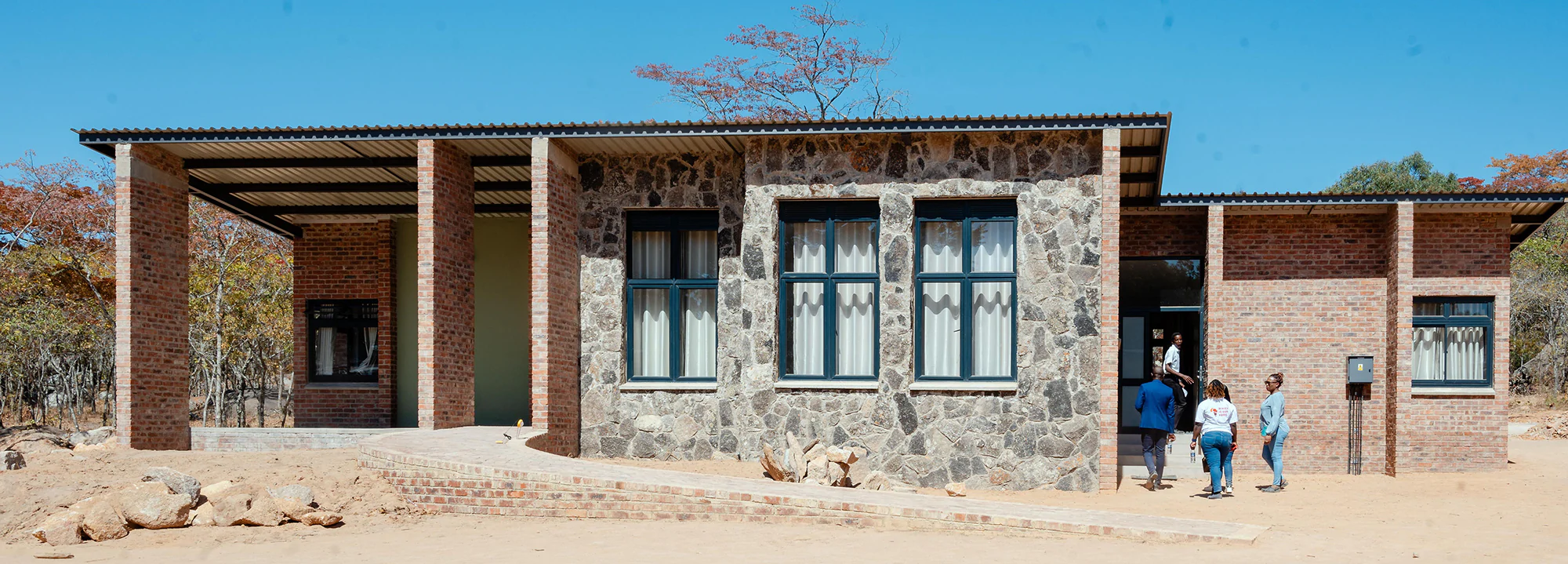
IAL supporting the infrastructural development at the USAP School in Marondera
Join us in building a sustainable tomorrow.
Empower Tomorrow, Transforming lives, Empowering communities. Our innovative initiative dedicated to corporate social responsibility.
Innscor Africa Limited unveiled the Corporate Social Responsibility Initiatives done within our businesses through their various brands across the Group through the new Empower Tomorrow slogan adopted this year. The Group celebrates the collective spirit of empowerment that binds us together and the Group’s contribution of their work is a testament to our shared mission and the strength of our unity.
Innscor Africa Limited’s long-standing commitment to Zimbabwe is grounded in the knowledge that an empowered community contributes to the development and success of businesses and, more broadly, the economy.
Our commitment is to foster environmental sustainability, community development, & entrepreneurship. We strive to create impactful change, supporting the growth of sustainable communities and nurturing the spirit of entrepreneurship.
Contributions to the local and national economy
The Group procured 61% of its raw materials locally thereby improving livelihoods and promoting the viability of the supply chain and downstream industries.
The Group also engages with the local community by employing casual labour on an ad hoc basis, providing job opportunities for unskilled workers. During F2024 the Group employed a total of 5 773 casual workers of which 30% were women. 38% of these women were employed at Natpak in its Sacks division, where they were employed as sewing machinist to stitch bags at conversion.
- Promoting improved livelihoods
The Group promotes sustainable livelihoods through grower support, market linkages and value chains that are targeted at small scale agricultural producers. - Paperhole Investments (PHI)
PHI provided grower support and product markets to 200 small-scale farmers in F2024. The grower support involved technical support and provision of seeds and/ or fertiliser as well as drought insurance cover for maize, sorghum, and sunflowers. PHI was the off-taker of harvested produce and the initiative contributed to national food security and improved household incomes. - Irvine’s
Irvine’s outgrower programme had 31 independent farmers supplying its processing plant with birds for slaughter. Irvine’s has also partnered with the Command Livestock Agricultural Programme since 2017 where it freely provides 12 equipped poultry demonstration houses across the country, each with a capacity of 2 500 broilers. Project beneficiaries used the first batch of chickens and feed set up to invest in the next batches. The project contributed towards the empowerment of poultry farmers in Zimbabwe. - Prodairy
Prodairy advocates local procurement with 20 dairy farms suppling the business with milk. The company has a supplier code of good conduct and carries out audits to ensure that the farms produce top quality milk, thereby ensuring the high standards set by Prodairy are carried through its supply chain and sphere of influence. - Profeeds
Profeeds continued to help and empower small-scale farmers within rural communities throughout Zimbabwe by providing free technical training programmes on animal health and farming. - Nutrimaster
Through good product innovation, Nutrimaster has adapted its product range to suit the different types of farmers the business serves. Through the introduction of ampules and sachet sized products the business has allowed crop protection chemicals to become more affordable and accessible to small-scale farmers. In addition, Nutrimaster, through the Optichem crop protection division, introduced herbicides with added adjuvants to make it convenient for the small-scale farmer bringing commercial quality products to all farming stakeholders. - AMP/ Zimnyama Abattoir
Zimnyama Abattoir assists farmers in Mashonaland West Province to realise commercial value for their beef through its community-centred zero-grazing programmes. Zimnyama fattens and provides markets for cattle farmers who realise much higher values for their cattle sales after the fattening. Through AMP’s livestock disease management programme, the Zimnyama Abattoir supported the communal areas of Mashonaland Central by providing chemicals on an as-needed basis for cattle dipping in F2024.
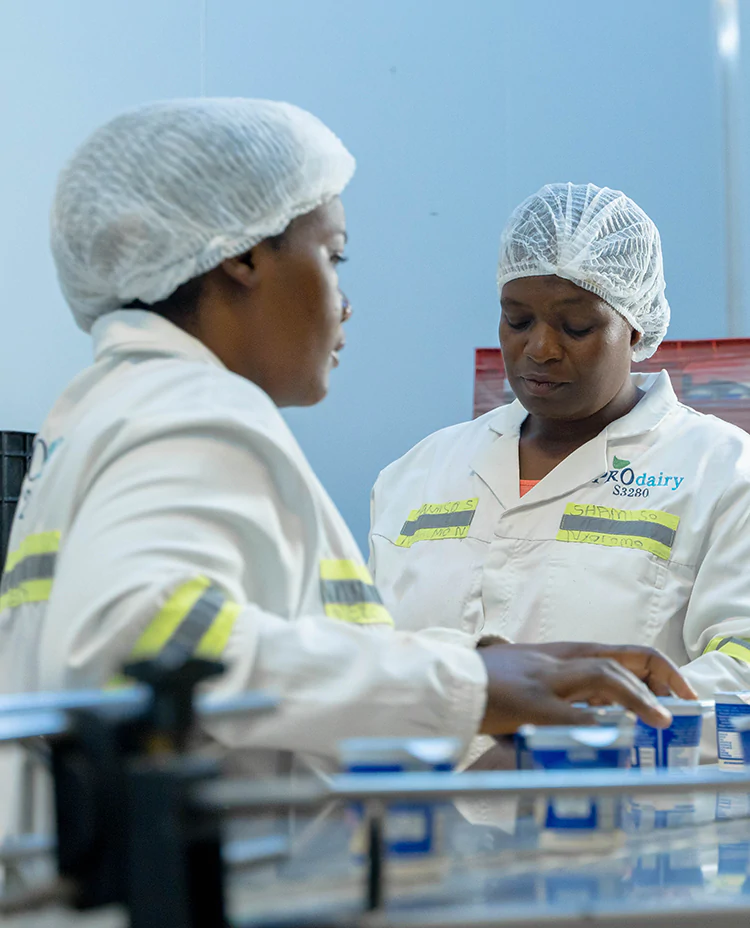
Prodairy - Mercy Munyamana & Shamiso Nyagomo
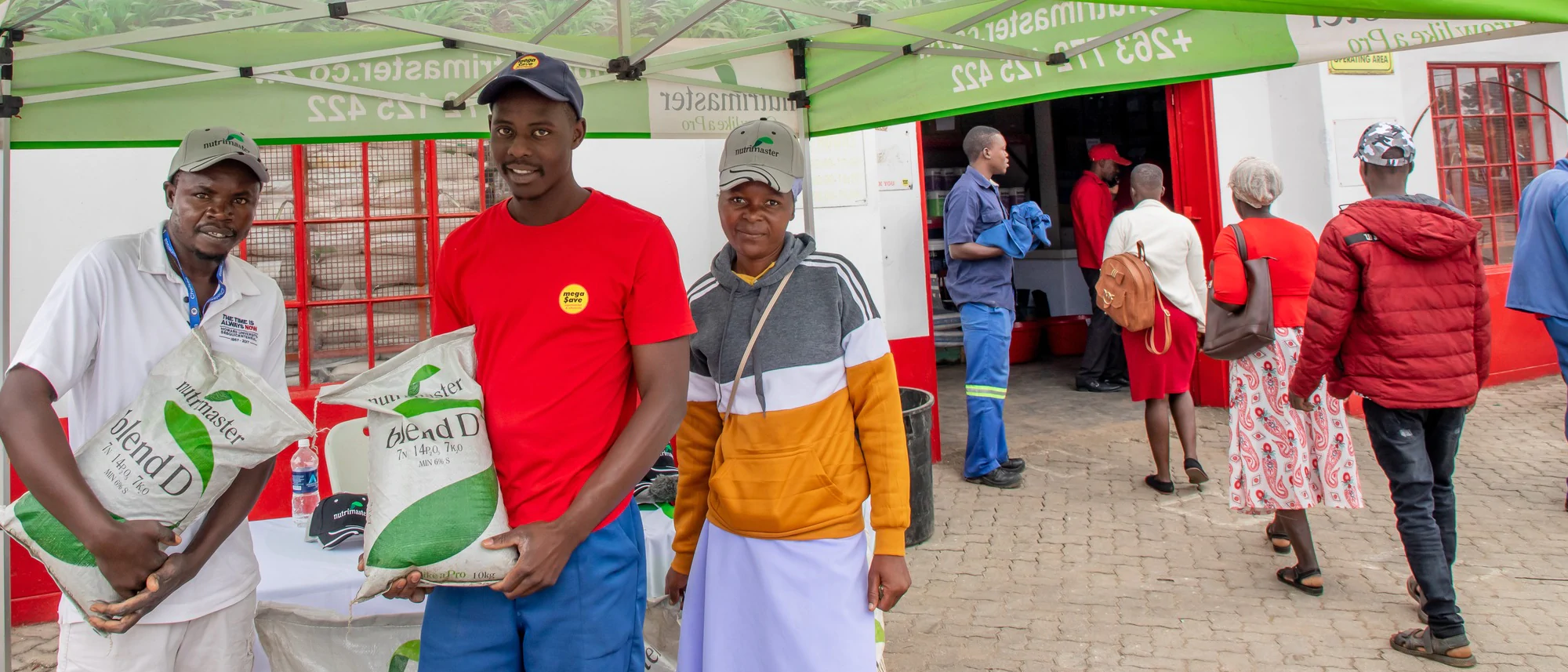
Shared water resources
The Group engages in water stewardship and leadership for sustainable availability of water resources. Mafuro Farming in Mashonaland East engaged local stakeholders and ZINWA through a local water users association to discuss equitable access to water for all farmers using the Safari West canal.
To enable the growing of 400ha of wheat in the Banket area of Mashonaland West, IL Integrated Agri pumps water from the Ghost Acres dam for its Gwina farm as well as numerous other farmers who face water access challenges from the severe water levels of the Ghost Acres dam.
Inclusive Business
Inclusive business focuses on facilitating and fostering economically vulnerable people’s participation in economic life – by easing access to a stable and sufficient source of income, to essential goods and services, or to valuable credits and loans.
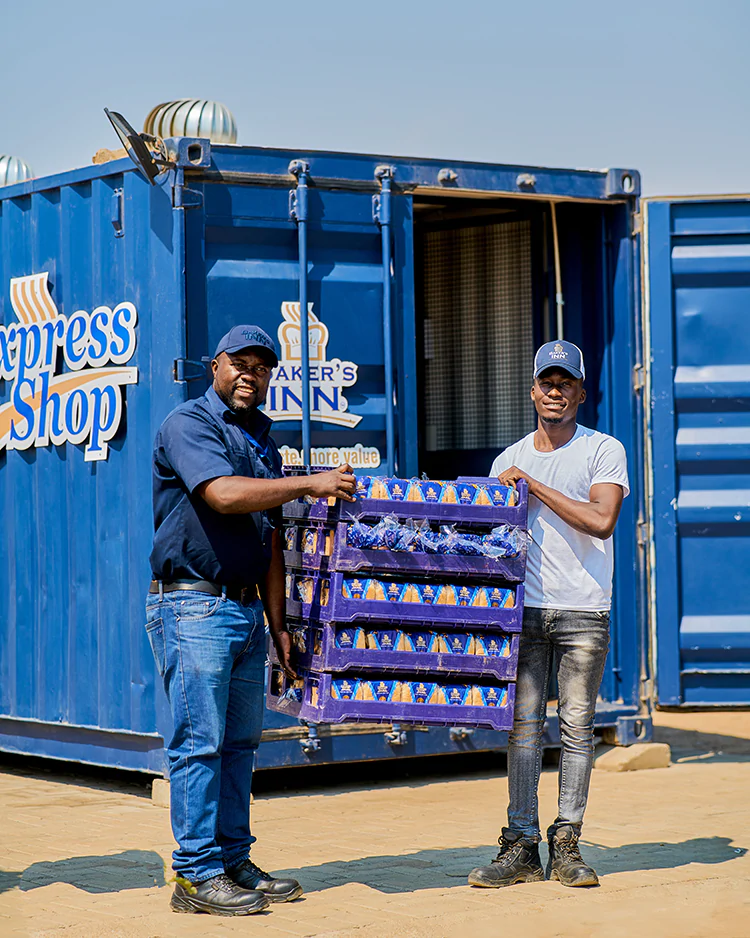
Baker’s Inn bread being delivered to our Baker’s Inn Container store partner
- National Foods Stockfeed Containers
Recognising stock farmers’ challenges associated with stock feed availability, accessibility and pricing, National Foods introduced stockfeed containers. - The A Life A Day Youth Layers Project
This project is a collaborative initiative between The Community Foundation of the Western Region of Zimbabwe (WRF) and the National Foods Stockfeeds Division. The ALAD programme aims to empower youth in rural Zimbabwe to develop sustainable livelihoods through enterprise development. - Baker’s Inn’s Container Retail
Through the container retail outlets with third party vendors, Baker’s Inn creates employment while ensuring product availability, access, quality and price stabilisation for the benefit of consumers. - Probottlers Fizzi Push Carts
Similar to Baker’s Inn inclusive business initiative, Probottlers provided 919 Fizzi push carts that retail 500ml Fizzi drinks as an employment opportunity for existing vendors in communities in which they operated in F2024. - Local Enterprises
A number of businesses work with local third party businesses and enterprises by increasing local procurement and outsourcing, thereby supporting local development through these economic partnerships. For example, third party enterprises collect waste from the Group’s businesses, in particular plastics and paper for recycling, which in turn becomes the raw material for their business enterprise
Infrastructural Support
- MyCash Financial Services / Financial Infrastructure
Rural communities are excluded from the formal banking system that also has inhibitive costs for low income earners. MyCash’s inclusive approach targets rural communities to reduce effects of economic exclusion from formal banking with technologically appropriate, simple, without internet mobile phones that are easily accessed by low income earners. - Southerton-Workington Industrial Cluster
National Foods is part of the Southerton-Workington Industrial Cluster. This is a group of companies working together in the development of Environment, Health & Safety (EHS) Management Systems as well as continuous development of EHS systems at each member company. This also acts as a platform for engagement and lobbying with various authorities for EHS improvements. - Local Infrastructure Support
Various operations such as National Foods, Colcom’s Triple C Pigs farms, Mafuro Farming and IL Integrated’s Gwina and Bally Vaughan farms acknowledge the poor state of the public infrastructure such as roads. To ensure the continued utility of such infrastructure for our operational viability as well as for the benefit of other operations and communities using the same infrastructure, our business units provided monitoring and rehabilitation for such infrastructure. Infrastructural development and maintenance services are also provided to Government institutions such as schools, clinics, the police, etc. upon the request in mowing over-grown grass at their premises for hazard prevention and aesthetics.
The Group sees community involvement and development through corporate social investment (CSI) as a significant value to its operations. The Group recognises vulnerable groups and communities within its sphere of influence that have limited capacity to realise their material needs.
The Group therefore has on-going commitments for the provision of basic essentials for selected vulnerable groups.
Charitable Donations
As the majority of the businesses within the Group are food manufacturers, food donations are a vital commitment and give-back to its communities. The chart below represents the group of beneficiaries the various businesses donate to on a regular basis during F2024. Children’s Home & Orphanages, Support for Sporting Activities and Retirement Homes were the top three beneficiary groups receiving food donations during the reporting year.
In addition to the regular food donations, the Group is deeply engaged with the communities it serves. Our social investment also focused on staff welfare and working with the communities we work in. As a result of all these initiatives, the Group spent a total of USD 3.9 million on its corporate social responsibility (CSR) programmes. The pie chart below highlights how the total spend was divided between the Group’s seven key beneficiary groups.

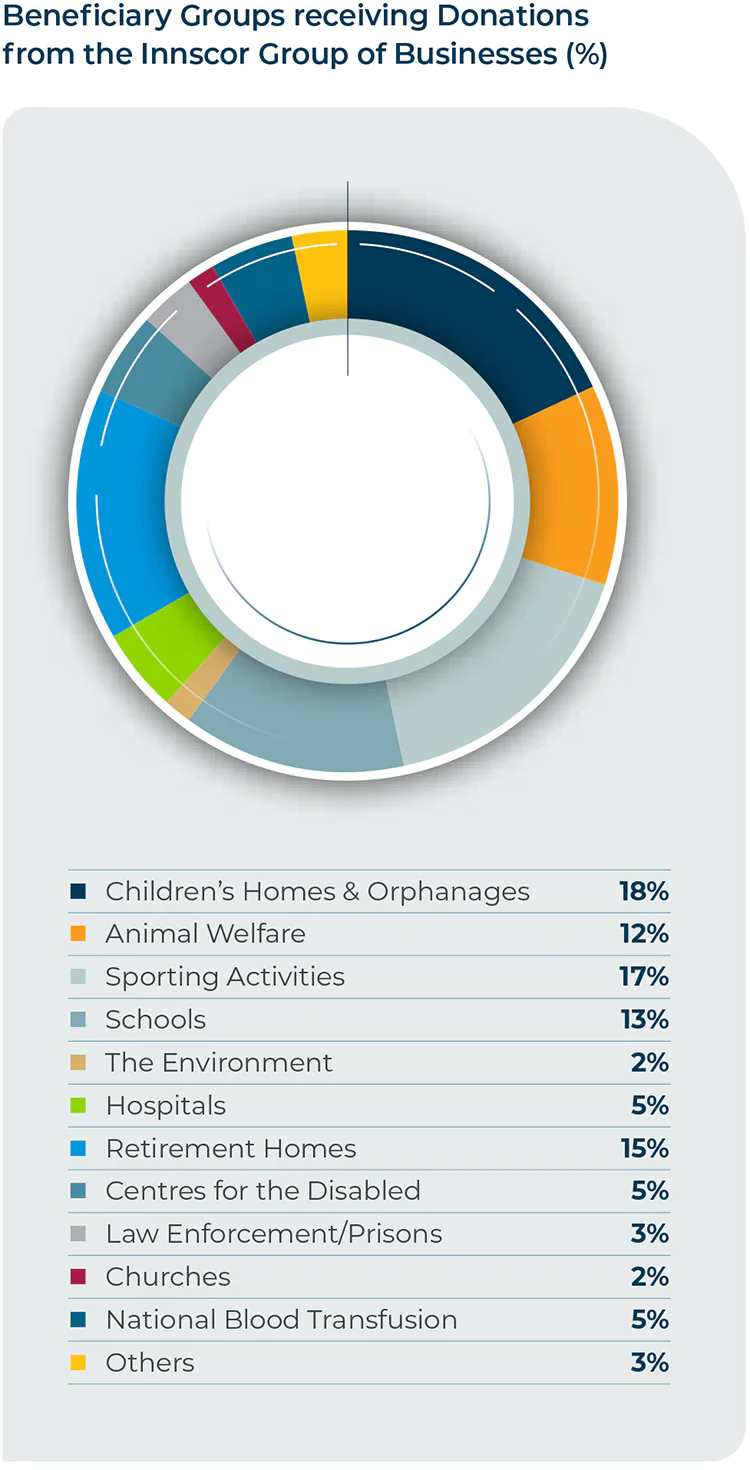
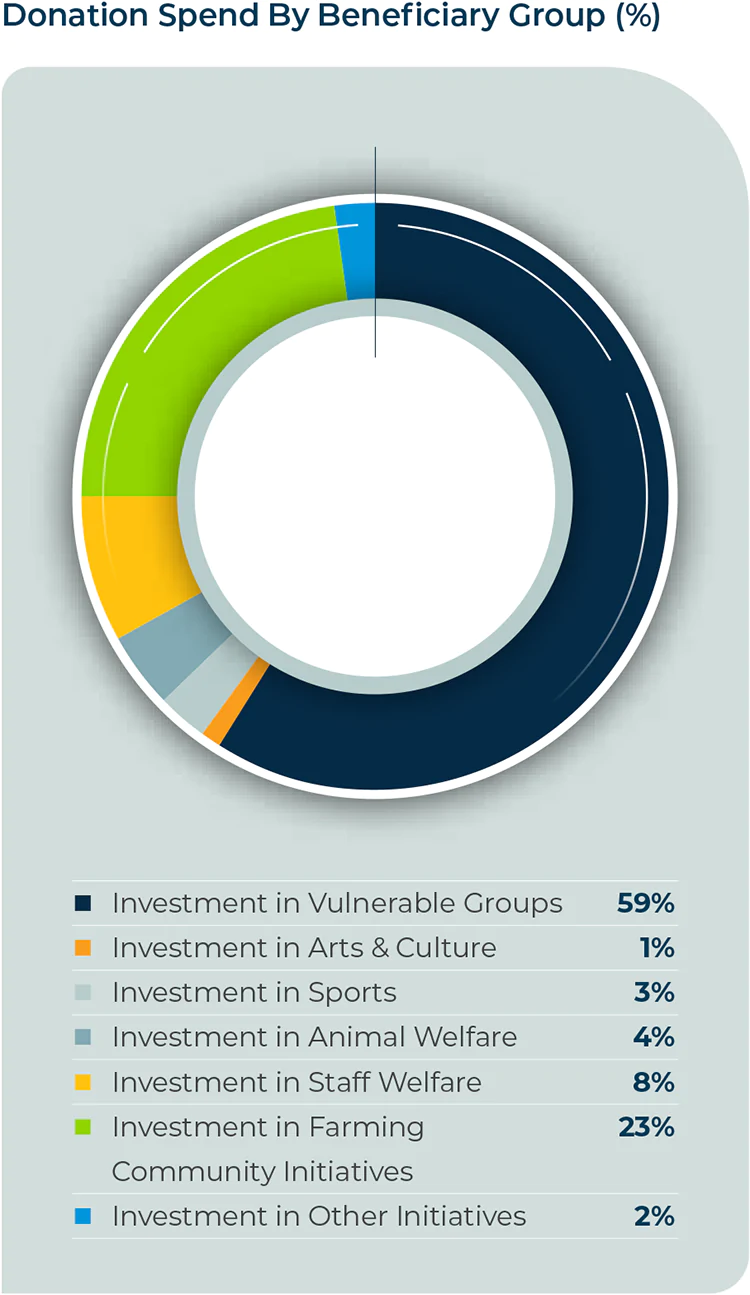
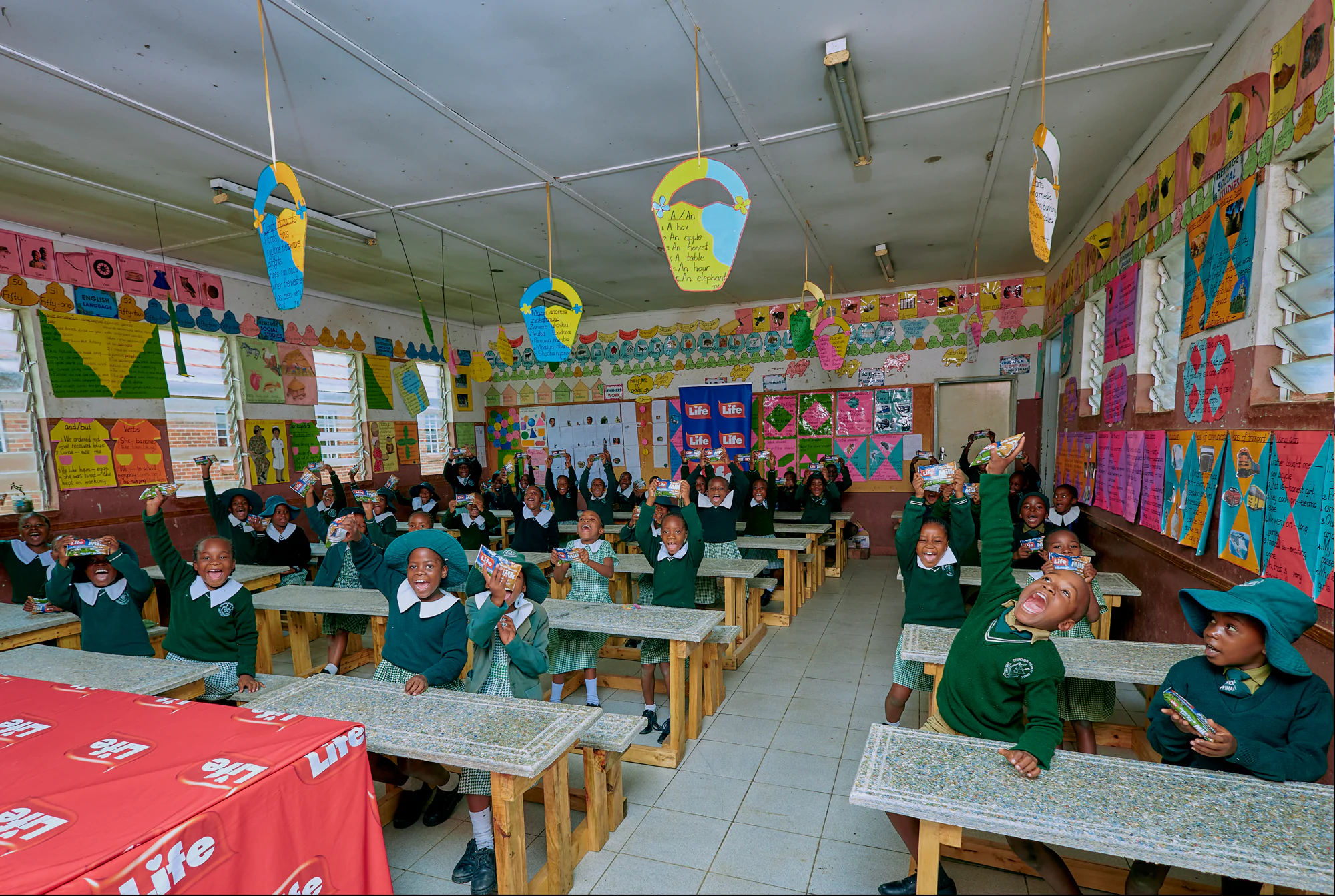
Life Feeding Programme - Chiremba School
